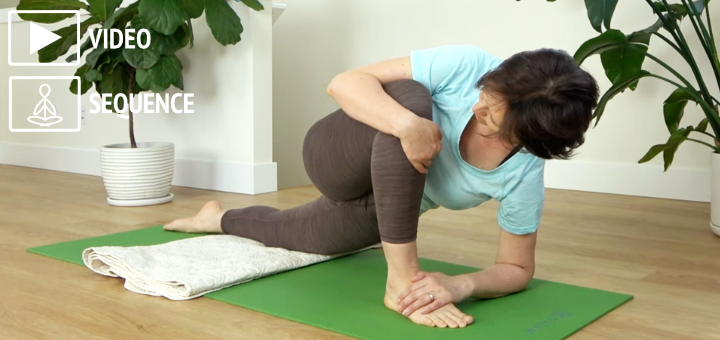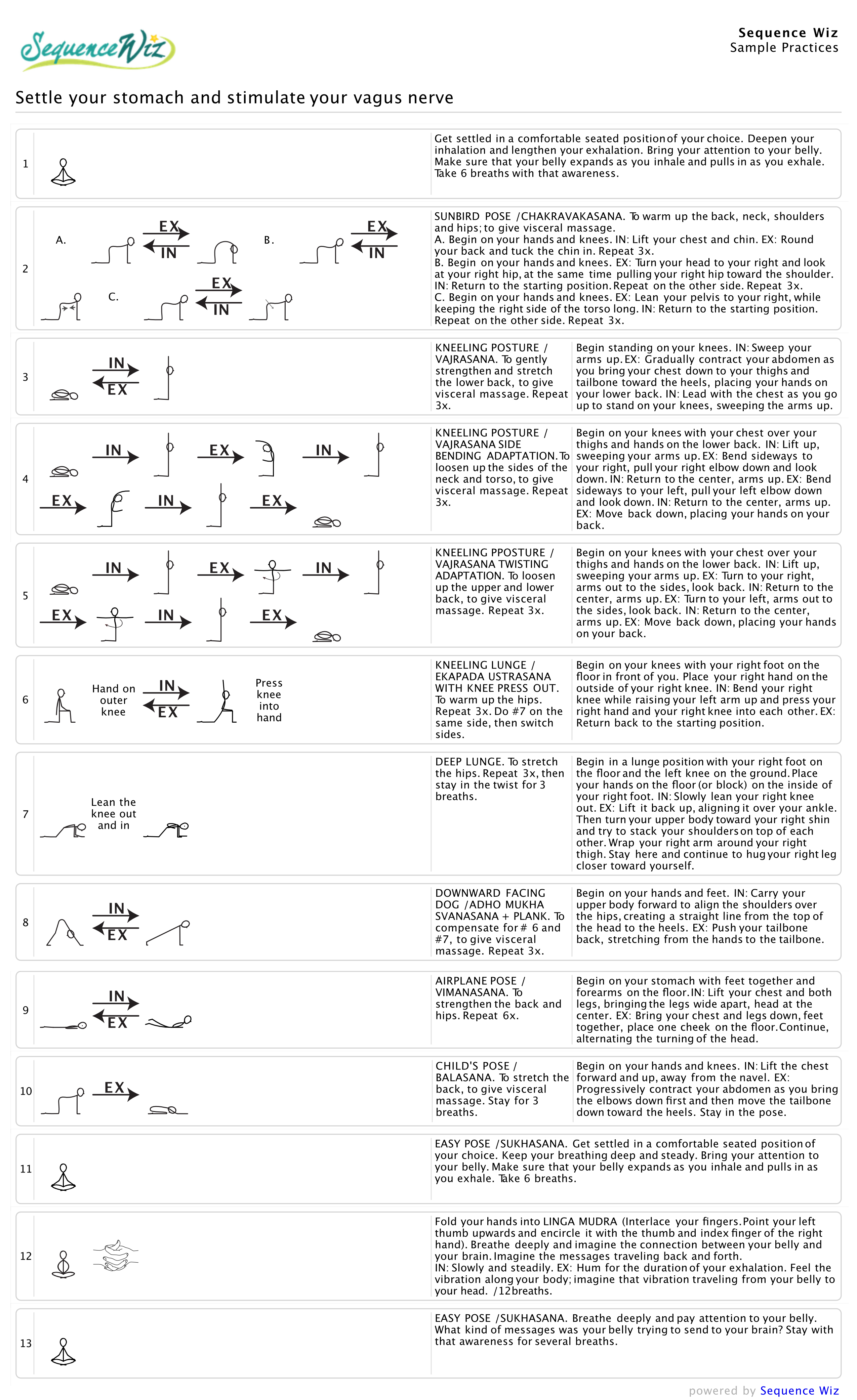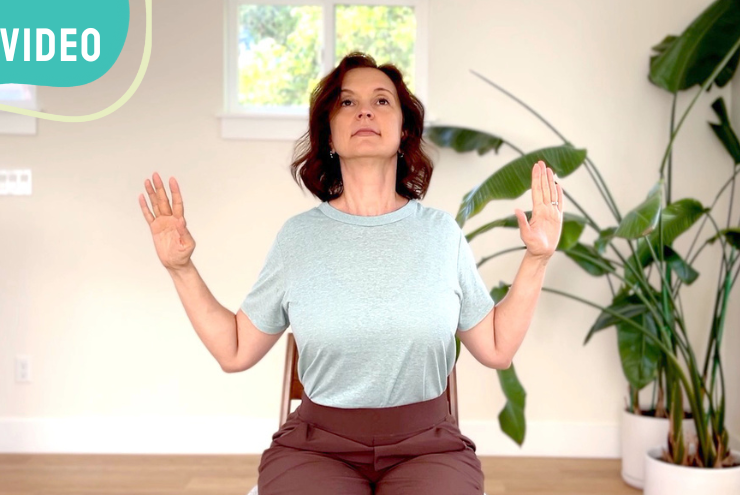Settle your stomach and stimulate your vagus nerve

Our digestive systems are in charge of breaking down food into its basic components, which are then absorbed into the blood and transported throughout the entire body. Food is the main source of energy that enables our bodies to form tissues and perform all vital functions. Our food becomes us, so we literally are what we eat.
Your digestive tract is very long, and it takes a long time for the food to travel through your entire system. For an average male, that journey takes about fifty-five hours, and for an average female, it’s about seventy-two. Roughly speaking, every meal spends about 4-6 hours in your stomach, where it gets broken down both chemically (with hydrochloric acid) and mechanically (by throwing chunks of food against the stomach wall). Your stomach also kills many microbes. Then, your meal spends about 6-8 hours in the small intestine, where all the nutritious stuff is extracted and distributed throughout the body to be used for energy or stored for later. Then, the rest of what’s left spends up to three days in the colon, which serves as a large fermentation tank. There, your gut bacteria pick through the remnants and feast on fiber.
This long, complicated process takes place after every meal we eat. The smoothness of this process can be affected by many different factors, including the quality and quantity of food you eat, your activity level, and even the amount of stress you are under. When it comes to your digestion, one size definitely doesn’t fit all. When you have any kind of digestive issue, it takes time and effort to tune in to your body and gradually figure out which part of the digestive process is malfunctioning. Do you feel knots in your stomach? Is the waste having trouble moving through (constipation)? Is the food moving through you too quickly (diarrhea)? Is your colon having spastic contractions (IBS)? Is your mental state reflecting in the sensations within your gut? Each of those situations will require a different approach in your yoga practice.
In this yoga practice, we use breath and movement to bring our attention to our digestive systems and then try to envision the connection between our guts and our brains. We use slow exhalation and humming to stimulate the vagus nerve, to settle the stomach, and to calm the mind.


Get four additional yoga practices for different kinds of digestive distress and many other yoga videos for skeletal, respiratory, cardiovascular, nervous, and immune systems in the Zoom In Within yoga series.










recently started doing yoga and it made a whole other difference in terms of my health and mind. i can feel the difference in how my body feels, my mindset, and obviously my gut. now I don’t have constipation problems like I used to have before because of my sedentary lifestyle.